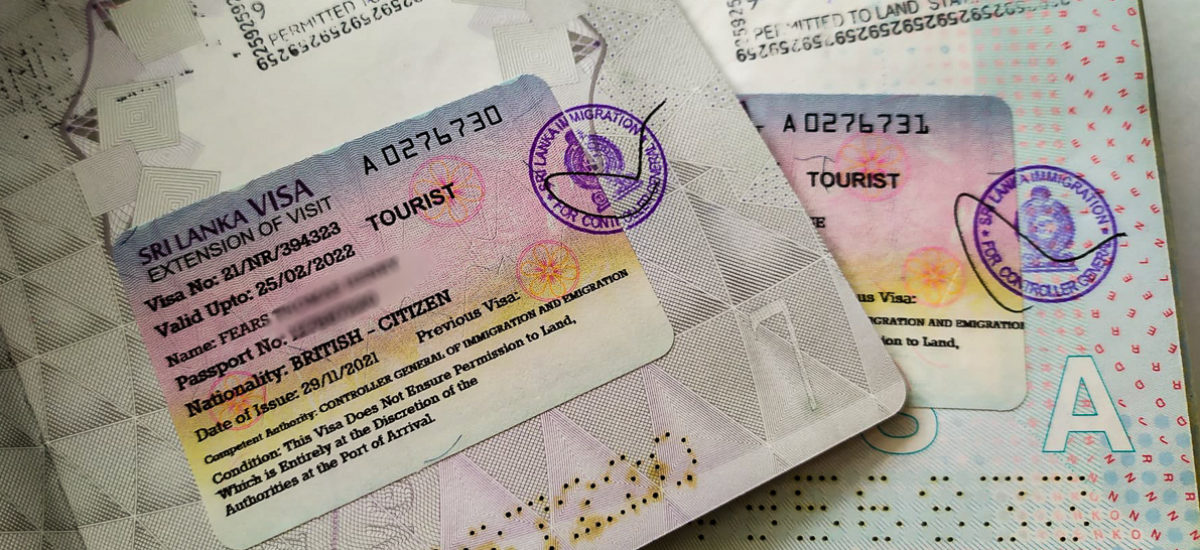Photo courtesy of Travelling Translated
On May 1, 2024 video footage shared on social media showed a Sri Lankan lawyer berating officials for outsourcing the issuance of visas to VFS Global at a congested Bandaranaike airport with long queues. What is the VFS controversy about? What did they do to our tourist visa process?
VFS Global, headquartered in Zurich and Dubai, is backed by several key shareholders including Blackstone, a private equity firm. VFS Global, which has been operating in Sri Lanka since 2004, has been facilitating the visa application process for 22 governments including the UK, Australia, France and New Zealand.
GBS Technology Services and IVS Global partnering with VFS Global first submitted an unsolicited a e-visa and visa on arrival facilitation proposal to the government. Instead of undertaking a competitive tender bidding process, the government appointed a committee on September 11, 2023 to examine the proposal. A cabinet paper was approved by December 11 and an tripartite agreement between the Department of Immigration and Emigration (DIE), GBS Technology Services and IVS Global was signed the following week. According to the agreement, VFS Global was awarded a 12 year monopoly to facilitate the e-visa and visa on arrival process.
VFS Global claims that its role is limited to collecting forms, enrolling biometrics and ensuring other travel documentation is in order. However, several changes were made by VFS to the hitherto smooth VISA application process:
- A new website was created to replace the easy to use DIE interface. It requires an One Time Password (OTP) activation process and several additional documents along with the twitter handle and Facebook username of tourists.
- Additional charges were placed on visa applicants. Visa fees for individuals from SAARC countries rose from $20 to $75 and from all other nations from $52 to $100.77.
- In the past, tourists could get a double entry visa so that they can plan their trip to Sri Lanka several months ahead and make the first arrival within six months of the issuance of a visa. Since VFS took over, the period was halved to three months. Tourists who were sold a six months visa by the VFS online portal were later informed that their visa would expire by three months.
- Children below the age of 12 years were given free visas, which are no longer offered under the VFS scheme.
- Tourists from India, China, Russia, Japan, Malaysia, Thailand and Indonesia who used to arrive under a free visa scheme now had to pay a $25.77 charge as processing fees.
Reports said that SLT-Mobitel, the government telecommunication agency, had submitted a proposal for the same services with only a $1 fee per visa.
Sri Lanka’s tourist visa fee of $100.77 was much higher than its competitors such as Singapore, Thailand and Vietnam who were charging less than $40. If the 2024 target of 2.3 million tourists visit the country, IVS-GBS and VFS Global stand to gain Rs.12.76 billion over a 12 month period.
Reports indicated that VFS invested $200 million for this program. It remains unclear however where this money was allocated. The Parliament’s Committee on Public Finance summoned the DIE and the Ministry of Public Security to investigate this matter further but officials from both agencies did not turn up at the inquiry.
A popular Youtuber, Will Davis, highlighted a potential data breach by VFS. His private email address received personal details of numerous other tourist applicants. Corruption charges have been levelled at the Public Security Minister, the only government minister publicly standing by the agreement, concerning a 10 million dollar campaign contribution by VFS Global. The Tourism Minister was reportedly not informed of this agreement until it was implemented and has opposed it.
Given the controversy and the confusion this scheme has created, tourists may seek to differ or choose alternative destinations over Sri Lanka. The country may see a net loss as a consequence of this program. Opposition parliamentarians have criticized President Ranil Wickremesinghe’s administration for launching a corrupt program that is “three or four times bigger than the bond scam”. Reports said that Sri Lanka has restarted offering the $50 visa only for single entry although the VFS Global website for e-visa remains in place.
The VFS controversy unveils a series of concerning practices surrounding the outsourcing of the service, especially when cheaper, tried and tested alternatives already existed. The lack of transparency in awarding them a monopoly 12 year contract, coupled with allegations of corruption, data breaches and potential financial discrepancies has sparked widespread criticism. This incident must serve as a stark reminder of the importance of transparent and accountable governance, highlighting the need for thorough scrutiny and ethical considerations in all agreements of this nature to safeguard the interests of the nation and its people.

